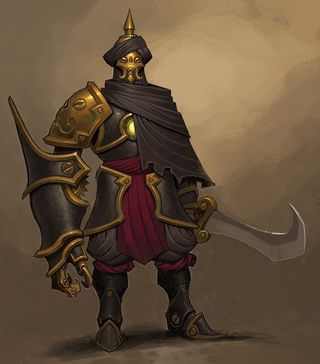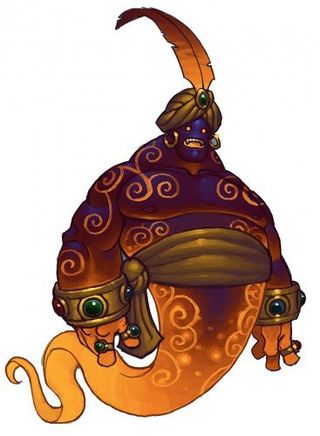Multiplayer, narrative and co-operation
PC Gamer: Is Torchlight 2 a continuation of the original, or are there more fundamental changes to the structure of the game and the mechanics?
Travis Baldree : Given the structure of the world, there's a difference in how you can progress, because there's more potential for lateral movement. In Torchlight it's very much: you go down. There's not much opportunity for branching, apart from a few side quests you can access in the town. In Torchlight 2, once you head out into the outdoors and the wilderness, there's more opportunities to take side paths and to go and explore areas that are not required. We actually hired a writer this time out, so we're endeavouring to have a coherent narrative, and to work that more into the quests that you're undertaking.

PC Gamer: Can you tell us a bit about how the multiplayer works? I'm assuming you're going to have had to change some of the mechanics in the game to make it workable for more than one person to play
Travis Baldree : We're trying to keep it as close as humanly possible, honestly. Obviously there's no pausing, but the aim is for it to feel as fast paced and enjoyable as we can possibly make it. We haven't decided on a final player count for a session. It might be anywhere from four, to six, to seven. It's really going to depend on how fast people are at mowing down monsters. We will probably, to a certain degree, limit the number of summons you can have, to prevent it being a crowd of five guys with twelve zombies apiece wandering the screen, for the sake of your sanity.
PC Gamer: Presumably, there's a degree of balancing between the multiplayer and the singleplayer in terms of pace.
Travis Baldree : The difficulty of the monsters tunes dynamically to the number of party members who are nearby. And we're using loot rules that are pretty similar to Mythos where drops are basically your drops. You pick up what you found and you don't have to fight over loot. In the singleplayer we'll allow you to pause and you will start exactly where you left off and it'll retain the full state of the region that you're in. In multiplayer, because you're going to be dipping in and out of other people's games and everyone's got their own random world, you won't have that. It might not be your game that you're joining, so the world's a little bit less concrete in the multiplayer, just given the nature of play. We want you to be able to go into the lobby and drop in and out of games and just join up with people and play for a little bit, hop back out, go join a different game.
PC Gamer: Are the levels linear in the same way, or is there more exploration?
PC Gamer Newsletter
Sign up to get the best content of the week, and great gaming deals, as picked by the editors.
Travis Baldree : There's definitely more exploration this time out, especially with the outdoor regions and the multiple exits to a level. You can be hunting around and stumble across a cave. We're also putting a focus this time on having random events that occur in the levels that give more structure to the world. You might come across a caravan being attacked and you can choose to stop and save them or go on by. We want little pockets of life that happen, with varying degrees of complexity, that give the world a little bit more flavour and life and reward you for maybe heading off the beaten path and finding something interesting.

PC Gamer: It sounds like in multiplayer it rewards people for not necessarily staying together.
Travis Baldree : There's certainly an advantage to staying together. When you're working in concert, we want skills that are excellent in party situations that give you a reason to be around each other. But, heck, that guy's killing stuff and it's dropping loot for me.
PC Gamer: Do you have any examples of how people might co-operate, cool class interactions, that kind of thing?
Travis Baldree : We've talked a lot about special placeable auras that you can use in the game that provide benefits to party members that are nearby, so that you can nail them down near a boss. We're in the early stages of putting these classes together, but a lot of them really do have to cater to the kind of action the game has. We're not going to have a lot of fiddly, “You need to target a specific character to apply this buff” kind of skills, because it's just not really conducive to the fast, 'run all over the place and beat the crap out of a ton of monsters' play that we have. But we still want to have abilities that provide benefits to your party and provide interesting ways to play.
Hey folks, beloved mascot Coconut Monkey here representing the collective PC Gamer editorial team, who worked together to write this article! PC Gamer is the global authority on PC games—starting in 1993 with the magazine, and then in 2010 with this website you're currently reading. We have writers across the US, UK and Australia, who you can read about here.
Most Popular


